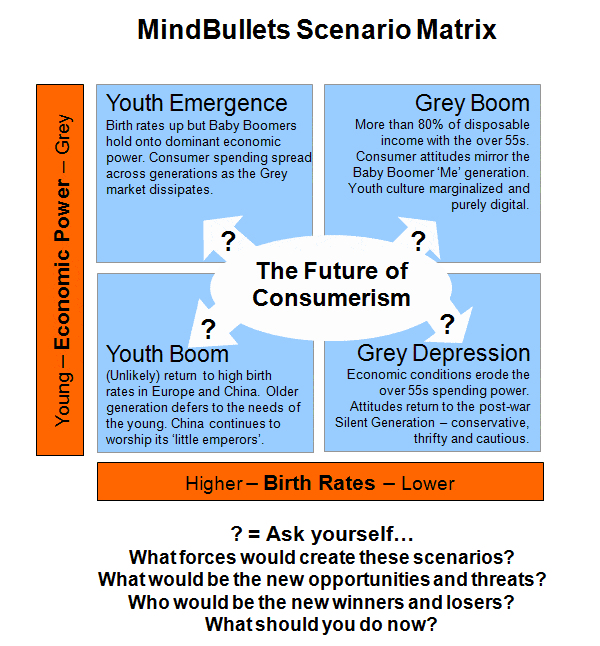
YE OLD RETAIL REVOLUTION

Over-55's outspend the under-25's ten to one
- Dateline
- 11 January 2020
What a holiday season! What a retail boom! How the grey consumers have turned the retail industry upside down. I’ve seen the future – and it’s grey.
Figures now available show that for the first time in December the ‘silver surfers’ have outspent their young counterparts by a massive ten to one.
Saga.com estimates that for the past five years the over 60 population in Europe, China, the US and central Europe has outnumbered those under 25, and today they own more than 80% of disposable wealth. And it’s not just about sheer numbers anymore – they are living longer and healthier lives.
It used to be that the older generation were reluctant consumers, cautious and thrifty. Not any more – those days are gone. Now, the new old generation wants to spend the kids’ inheritance, or give it to charity.
There is no stopping grey consumers. They are tech-savvy, wired to everyone and they seek adventure travel, radical lifestyles, pleasure in everything, instant gratification – and, they have money to burn.
It’s hard to remember the days when most advertising was targeted at young markets, when ad companies were staffed by bright young things. Today, young markets are at the fringe, and young creatives simply don’t understand the new ‘old’ markets. Now, you are likely to see a silver surfer leading the creative team.
For those over 80, there has been a massive boom in ‘Las Vegas Health Care’ – a combination of luxury resort hotels, exotic locations and high-tech hospitals.
Even as we head towards the twilight of our lives it seems we choose not to do without adolescent thrills, and the occasional spills.
ANALYSIS >> SYNTHESIS: How this scenario came to be
We are living longer, more healthily and now, ever more actively.
We no longer suffer from the consumer inhibitions of our parents – they were shaped by the shortages of two world wars, we by the anything-is-possible Sixties. You can’t call us ageing Baby Boomers thrifty, that’s for sure. We’ve created an economy based on debt that is unprecedented in human history.
The idea of ‘retirement’ is a nonsense for us. We’re doing what we love and we’re not going to stop now. To us, retirement means new dawns, new beginnings and unprecedented choices. It means a multiplicity of new business opportunities.
Above all, we do not want to leave our hard-earned fortune to our kids. Certainly not without a fight. Sure we’d love to give them a good start but we don’t want to spoil them. Bill Gates and warren Buffett set the tone and we’re right behind them. Let’s leave it in a way that can benefit mankind. If we can find a way that will not be corrupted.
In the meantime we intend to live, live, live. And that means spend, spend, spend – on everything from travel to lifestyle, from physical preservation to enhancement, from movies to Viagra.
Isn’t it wonderful that advertisers are recognizing that we are the new center of the consumer universe? We’ve got the money, the desire to spend it and the power of unlimited choice. We take the internet for granted, it’s just the infrastructure for ‘everything’. We love communicating and being interconnected with friends and family who are now scattered throughout the world. Winter weekends in Morocco with Alberto and Sally; summer in the Caribbean with the Longs; autumn in New England with Bill and Sheila. The world’s our oyster.
We spend big on the things we love: luxury is a given – we’ve spent too many years flying economy! We love a good deal, and know how to get it. EasyJet can be cool for weekly hops for the weekend – anyway that’s where many of our friends travel. We tend to buy everything online – we hate shopping malls and love it when the delivery van rings the doorbell!
You may call us ‘grey’ but we feel silver. If Fifty now stands for the ‘the fun years’, Sixty really is the new ‘sexy’. Bring it on.
1990: Over 50s the most conservative consumer segment
The focus on ‘youth’ has continued for a generation. The over-50s are, justifiably, marginalized as consumers.
2000: European population shrinking
Throughout Europe birth rates are declining, below replacement numbers. Immigration is the only way low-skilled jobs can be filled.
2005: Retirement hits the skids
The EU begins a debate on extending retirement ages.
In Britain more than one million people are working beyond retirement age (65 for men and 60 for women).
The proportion of people who estimate they are saving enough for retirement falls from 55% to 46%.
Less than half the population lives in ‘normal’ family units – with both husband and wife (or mother and father) under the same roof.
2007: Shanghai incentives to combat ageing population
China’s one-child policy has particularly extreme effects in Shanghai where it is estimated that by 2020 more than half the population will be over 55. The city considers incentives for couples to have a second child.
2010: Evergreen consumers take center stage
The advertising industry leads a move into new consumer markets. In 2007, the over 55s working in advertising agencies represented just 4% of the workforce, that has now moved to 15%.
Technology enables youth markets to become increasingly niched. Less formal advertising focus but increasingly powerful access.
Evergreen consumers turn out to be much more tech-literate than expected, and embrace the new technology for retailing. For the first time the over-55 market segment exceeds consumer spending for the under-25s.
Older generations are setting up a multiplicity of low-cap start-ups, often based on eBay, selling stuff online, to markets they really understand.
2020: The retail transformation is complete
The over-55s market is now completely dominant in all regions except Africa and South America.
Even India has now experienced a sharp drop in birth rates after more than a decade of double-digit economic growth.
China scraps its one-child policy. With perfect 20/20 hindsight it turns out to have been one of China’s biggest economic mistakes, robbing the nation of a generation of young, hungry entrepreneurs.

Links to related stories
- Grey future in store: Credited with inventing youth culture, the baby boomer generation is about to reinvent old age - Design Week, 29 November 2007
- Evergreen Generation: Why Baby Boomers are Hot - Daily Telegraph, 27 November 2007
- Taking 'me time' is not a crime - Daily Telegraph, 27 November 2007
- Important consumer trends for 2008 - Trendwatching web site
Warning: Hazardous thinking at work
Despite appearances to the contrary, Futureworld cannot and does not predict the future. Our Mindbullets scenarios are fictitious and designed purely to explore possible futures, challenge and stimulate strategic thinking. Use these at your own risk. Any reference to actual people, entities or events is entirely allegorical. Copyright Futureworld International Limited. Reproduction or distribution permitted only with recognition of Copyright and the inclusion of this disclaimer.